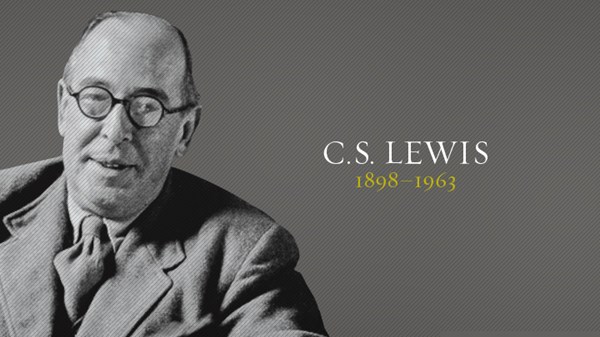The following are the words of C.S. Lewis, Christian apologist, and is posted on an LDS web page (see here). It addresses the question of the salvation of those who die without ever hearing the word of God, or the gospel, or of salvation through Christ. It was this question, along with the ordo salutis question (which comes first, regeneration and rebirth, or faith?), that produced the Hyper Calvinists and the Hardshell Baptists, yea, even the Universalists. I dealt with this question in many posts through the years, but see these two:
"Couldn't Answer A Simple Question" (See here)
"R.B.C. Howell on Hardshellism" (See here)
Howell wrote:
"We will explain with very great pleasure, and thank brother Carney for the suggestion. In the place referred to we were exposing the absurdity of old school doctrines. They maintain that all the heathen will not be lost, because they are perfectly ignorant on the whole subject of religion. Then, we said, if they are not lost they are saved, and if our old school friends are right, they are saved by their ignorance. This they profess to believe, not we. But it is evident, with us, that those who are saved on the Bible plan, are saved by the knowledge of God in Jesus Christ. This we know is true; and assuming the doctrine of "the hardsides" to be true also, then some are saved by the ignorance of God and some by the knowledge of God. We laid down these grounds and then, to show the absurdity, of antism stated, if this be true, ignorance and knowledge are equally beneficial. We believe that no one will be saved but through the blood, and righteousness of Jesus Christ, and that all who have arrived to years of maturity, heathen or not, who do not repent and believe in Christ will be lost."
That is my view and the one taught in scripture and the one the Baptists who put forth the 1689 London Confession also believed. It is the debate about "exclusivism" versus "inclusivism." If you believe that only bible believers will be saved, only believers in God's Messiah, then you are an exclusivist. If you believe that people in other religions (Muslim, Hindu, Pagan, etc.) are also saved, then you are an inclusivist.
The above citation from Dr. Howell (SBC president from 1851-58) is my view. However, C.S. Lewis, like Dr. Flowers, and like our Hardshell brothers, believe that many who die without faith in the God of the bible and in Jesus Christ, the Son of God and savior of the world, will nevertheless be saved. That is not biblical.
Said the LDS editor (emphasis mine):
"Although there is no way of knowing exactly how many people died without ever hearing about Israel or the church, it seems safe to conclude that the vast majority of human beings who have ever lived fall into this category.
In terms of sheer numbers, then, an inquiry into the salvation of the unevangelized is of immense interest. What may be said about the destiny of countless billions who have lived and died apart from any understanding of the divine grace manifested in Jesus? [1]
Said the LDS editor:
"Christian apologist C. S. Lewis found himself puzzled by this dilemma. On one occasion he remarked:
“Here is [a matter] that used to puzzle me. Is it not frightfully unfair that this new life [in Christ] should be confined to people who have heard of Christ and been able to believe in Him? But the truth is God has not told us what His arrangements about the other people are. We do know that no man can be saved except through Christ; we do not know that only those who know Him can be saved through Him.” [2]
Here are the sources for the citations:
[1] John Sanders, ed., What About Those Who Have Never Heard? (Downers Grove, IL: InterVarsity Press, 1995), 7–9; see also Clark Pinnock and Delwin Brown, Theological Crossfire (Grand Rapids, MI: Zondervan, 1990), 227.
[2] C. S. Lewis, Mere Christianity (New York: Touchstone, 1996), 65.
The Hardshells sometimes will cite words from the late Dr. Billy Graham concerning the heathen, and he seemed to reflect similar views to Lewis, and to Flowers. They see it as an inconsistency in their theology, and I agree. If I were still a Hardshell fighting those who were exclusivists, I would fire off citations from men like Graham, Lewis, and Flowers and say "see there, even they admit that you don't have to hear and believe the gospel (or in Jesus) to be saved. So, they are wrong to tell people that they must believe in Jesus to be saved eternally."
I will have to disagree with Lewis when he says that the bible does not affirm that only true believers in the one true God and in his Son the Messiah will be saved. Those last statements in bold red above would receive many amens from the Hardshells. They too would say that people can be saved "through" Christ apart from knowing and believing in him.

No comments:
Post a Comment